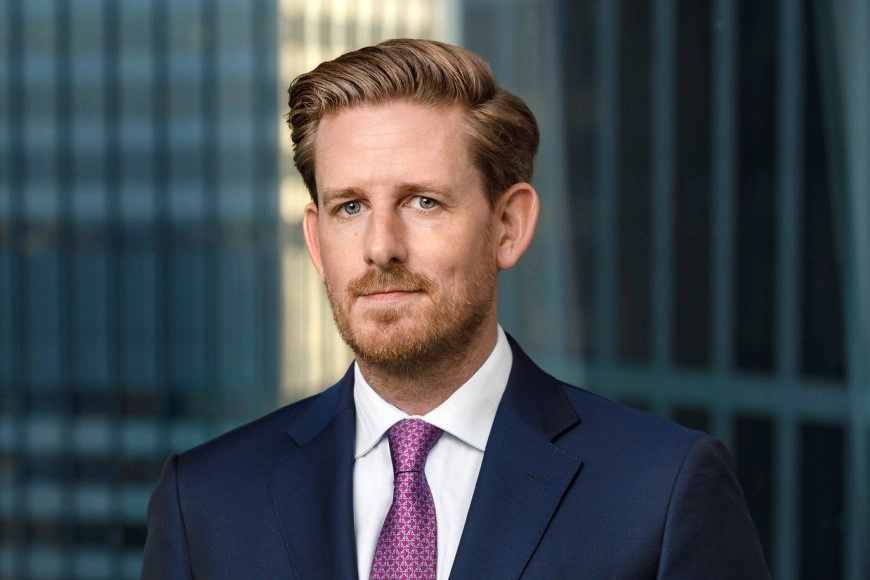
Ever since Germany plunged into the gas crisis, Jörg Selbach-Röntgen, an experienced gas trader and Managing Director of MET Germany since autumn 2020, has been in demand in the energy sector and beyond. At the beginning of the year, the Swiss parent company MET secured capacity at the LNG terminal in Lubmin, Mecklenburg-Western Pomerania. A few months later, Selbach-Röntgen himself appeared as an expert in the Bundestag's Energy Committee. On the fringes of the Handelsblatt Gas Conference, ZfK talked to him about the opportunities and risks of new LNG long-term contracts – and about the call from large industrial companies for state aid.
Mr. Selbach-Röntgen, the first major German gas traders have started to conclude LNG long-term contracts. Is that enough?
No. In my view, far too little has happened so far. The publicly known quantities are too small to bring more stability to the European gas market in terms of security of supply and prices. Overall, we are still far too dependent on short-term cargoes and thus on the spot market.
Where does this reluctance come from?
Compared to last year, gas prices have fallen significantly. The extreme price movements have eased. The gas storage facilities are full, the gas flows stable. Therefore, the urgency to hedge in the medium and long term does not seem to be a dominant thought at the moment. But this assumption of supposed security is deceptive. Those who rely exclusively on the spot market are exposed to considerable price risks. If China and the entire Asian region start sucking up liquefied natural gas on a large scale from the spot market, gas for Europe can quickly become scarce and expensive.
What would you wish for?
On the one hand, we need an intensive dialogue about the shared responsibility for security of supply. It needs politicians, wholesalers like us, but of course also the big buyers in the municipal and industrial sector, who should all play a supporting role. Many players are currently observing the situation from the sidelines, but nowhere near enough is being done.
Let us assume that large-scale industry and large municipal utilities hedge 10 to 20 percent of their portfolios on a pro rata basis via ten-year LNG contracts. This would immediately have a positive impact on the gas markets. There would be good chances of a more stable situation in the long term with more predictability and better price levels. Then we could also talk much more calmly about the transformation of the gas industry.
But?
In my experience, even negotiations on ten-year contracts are incredibly complex.
Why?
Compared to the usual daily business with normal futures market transactions on the basis of a master agreement, there is, of course, more to discuss and explain. The requirements for the company's own risk management and purchasing strategy must be readjusted. That puts many partners off. Such a contract can be structured very creatively, and the conditions offered by US exporters, for example, which we pass on back to back, are extremely attractive – especially when the prices are linked to the Henry Hub, one of the most liquid and currently cheapest gas price indices worldwide.
However, many companies and municipal utilities have set themselves the goal of becoming climate neutral well before 2045.
The current discussion about transformation and the consequences for one's own company, portfolio or network area is fuelling further uncertainty. Against this backdrop, they no longer want to make such a long-term commitment. In this context, LNG can play a good role in the phasing-out of fossil fuels and the individual end dates of the delivery can be flexibly designed.
You will have to explain that.
Long-term contracts are concluded between wholesalers and producers. The latter need long-term planning security for their projects. This usually leads to terms of around 20 years. However, there is the possibility of structuring long-term contracts in such a way that they can be transferred to another company after a certain period of time, or also for example, to another country such as Japan.
And it’s the buyers who need to deal with it?
No, it is our task to design the delivery period required in each case to suit German customers and the market, and thus to secure stable gas prices for a number of years. No German municipal utility or industrial customer therefore needs to view LNG with concern about overlong delivery periods.
Major German industry associations are currently calling for state aid, and the first energy-intensive companies are already threatening to relocate production abroad. What do you think of this?
We all share the responsibility to strengthen Germany as a business location. Not only politicians, but all of us must do more here. It must also be acknowledged that the federal government has already opened the door, built LNG terminals and advertised in LNG exporting states. In discussions with politicians, we are experiencing openness for further, targeted support of potential buyers and we try to assist in an explanatory and coordinative way.
But?
The long-term contracts then need to be concluded by the market players themselves. Competitiveness in terms of energy prices also depends on one's own strategy and not only on already existing levies or bureaucracy. Analysis of the past few months of crisis shows how heterogeneously the market participants were positioned here. Now it is also a matter of acting autonomously wherever possible.
The interview was conducted by Andreas Baumer
